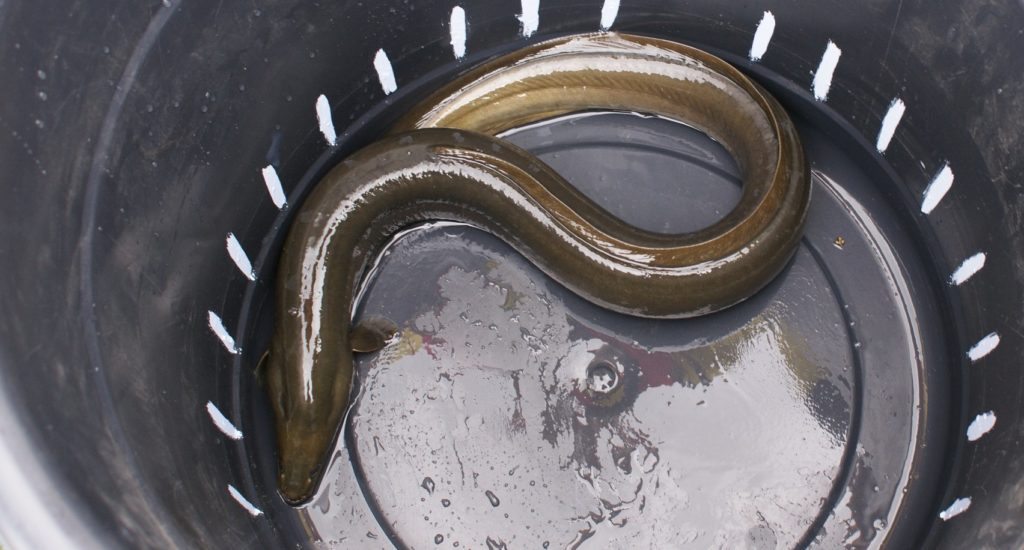DNA Testing Finds Endangered Eels on the Menu
DNA testing has confirmed widespread – and probably illegal – international trading of critically endangered European eels.
 DNA testing has confirmed widespread – and probably illegal – international trading of critically endangered European eels.
DNA testing has confirmed widespread – and probably illegal – international trading of critically endangered European eels.
A research team led by the University of Exeter carried out “DNA barcoding” on products including jellied eels and unagi, which is used in sushi and donburi.
With European eel populations at about 5-10% of their former levels, the EU has banned the import and export of European eels.
This has sparked a highly lucrative illegal trade – with media reports of a “multi-billion pound eel mafia”. In June 2022, European authorities announced the arrest of 49 people involved in a trafficking network that moved live eels in suitcases.
The researchers analysed 114 samples and combined their results with existing published research, finding European eels – and endangered American and Japanese eels – on sale in the UK, Continental Europe, North America and Asia.
“The growing popularity of Japanese cuisine worldwide has caused an increasing demand for freshwater eels,” said Dr Andrew Griffiths, from the University of Exeter.
“The complex lifecycle of these eels – which includes migrating from rivers to spawn in the sea – means they cannot be bred at large scale in captivity.
“So the illegal trade involves catching young eels in Europe, transporting them to East Asia and growing them on in fish farms.”
The new study tested eel-based foods in North America and Europe. About 40% of North American unagi samples they analysed contained European eel.
“It’s hard to track where the eels come from, but it’s unlikely that all of those found in the samples came from the small amounts of legally exported European eels from North Africa,” said joint first author Kristen Steele, of University College London.
“It’s very possible that illegal trading brought these eels into the supply chain.”
The study also found a “stark mismatch” between the natural range of eel species and where they were commonly sold.
More European eel was found on sale in East Asia than in Europe; and more Japanese eel was found in the UK than in East Asia.
As well as concerns over illegal trade and species conservation, this suggests thousands of food miles are “hidden” in eel products.
Most traditional UK eel products sampled, like the jellied eels famously sold in London’s East End, were made from European eels. Such products may be legal, but they still involve the consumption of a critically endangered species.
The researchers stressed that factors such as habitat disturbance (including dams) and climate change are contributing to the decline of eel populations.
But overfishing also plays a role – and consumption of European eels in traditional dishes in Europe has caused recent controversy.
“Labels on eel products and menus rarely specify what species they contain, so it’s very difficult for consumers to make ethical and informed choices,” said joint first author Amy Goymer, who worked on the study as part of her Biological Sciences degree at the University of Exeter.
“Illegal trade and lack of information for consumers are likely to continue until robust traceability systems and better labelling are introduced across the supply chain.”
The results also link to the upcoming episode of BBC nature documentary Wild Isles, which focuses on freshwater animals.
European eels were once common, ascending our rivers in large numbers and supporting local fisheries, but have undergone striking declines and need active conservation and management.
Publication: Amy Goymer, et al., For R-eel?! Investigating international sales of critically endangered species in freshwater eel products with DNA barcoding, Food Control (2023). DOI: 10.1016/j.foodcont.2023.109752.
Original Story Source: University of Exeter

 Alerts Sign-up
Alerts Sign-up